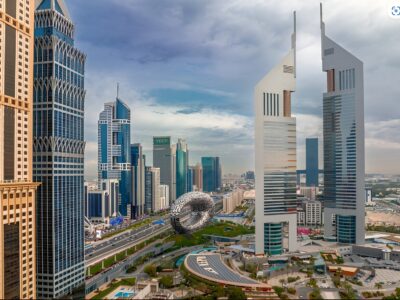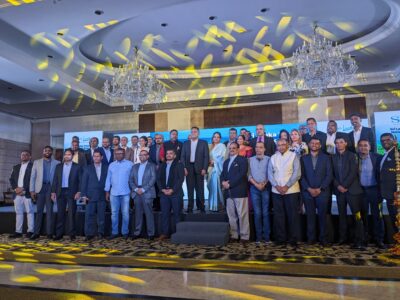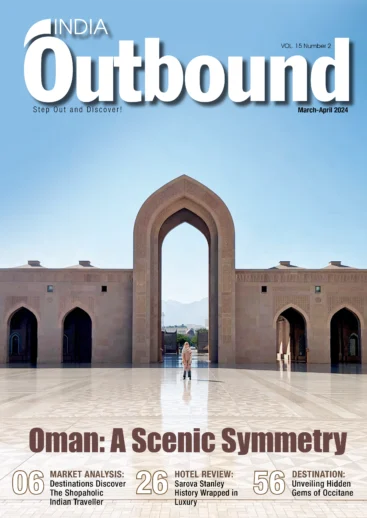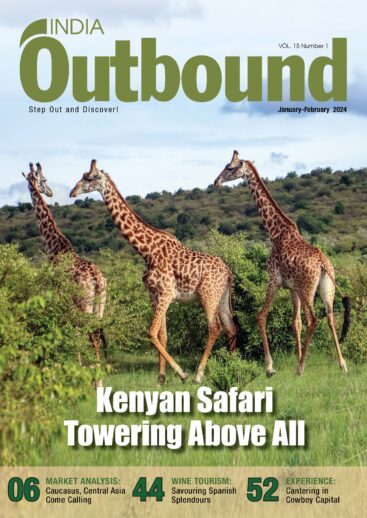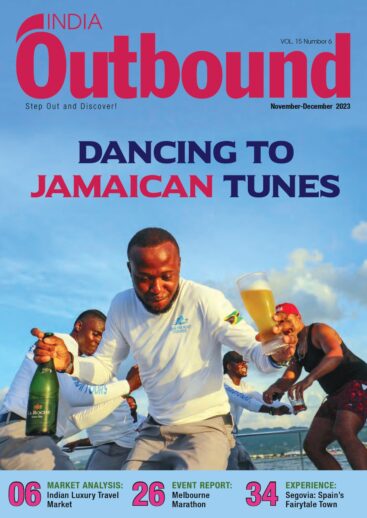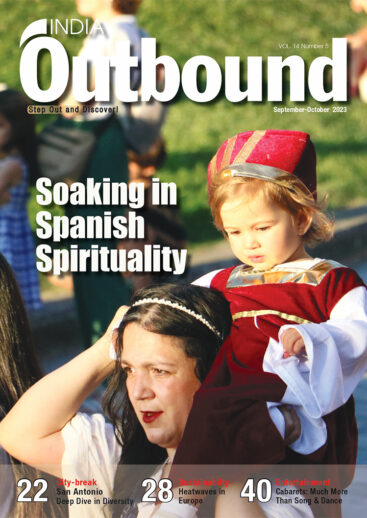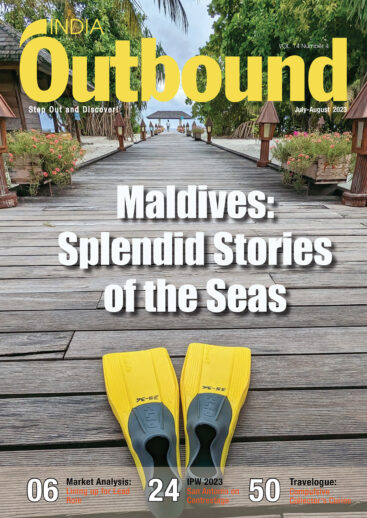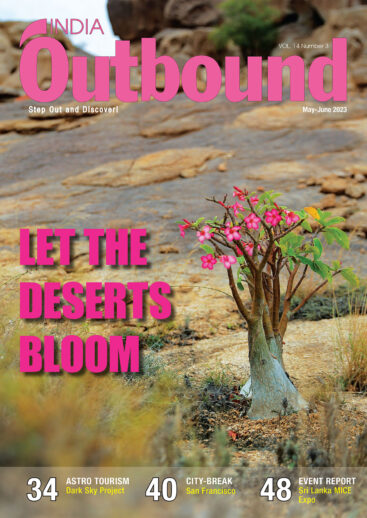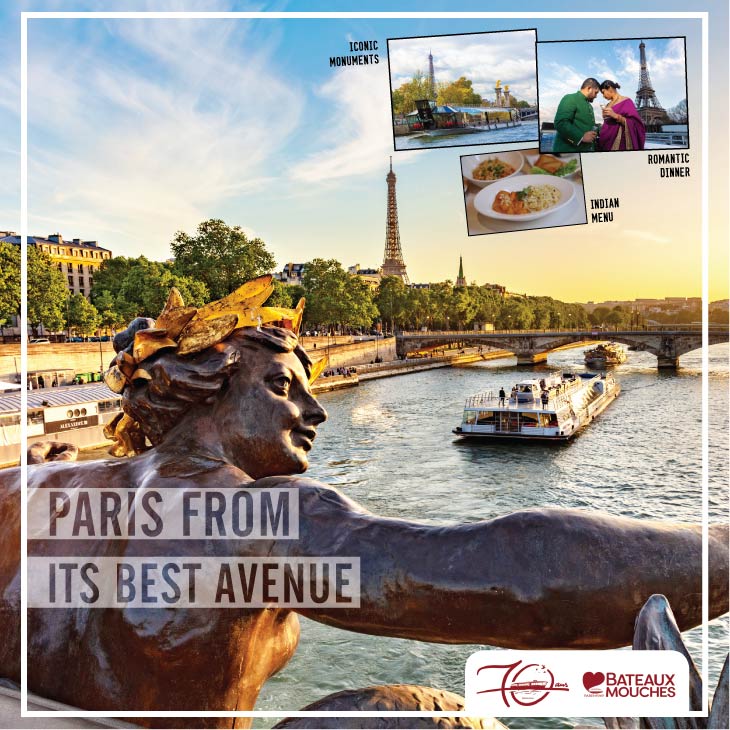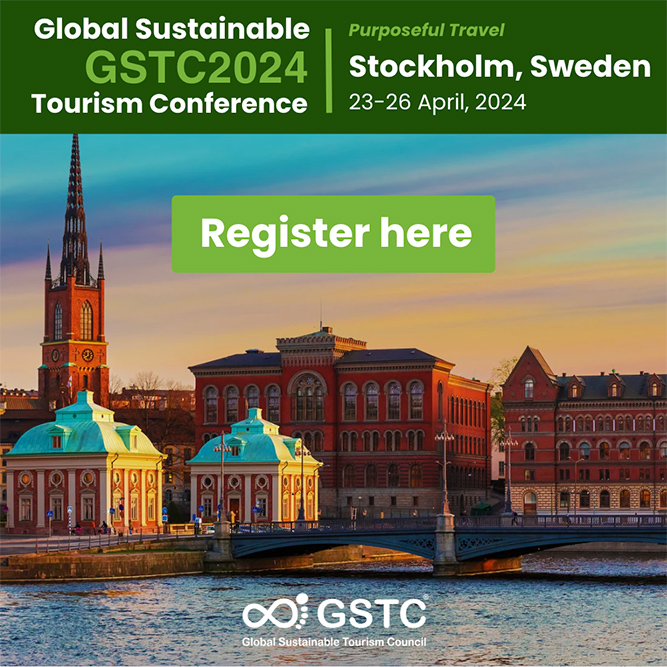
Increasingly, “Digital Nomads” are choosing a work-travel lifestyle, which allows them to explore exciting destinations without worrying about using up paid vacation days.
The latest annual research by World Travel & Tourism Council (WTTC) showed that prior to the Covid-19 pandemic, travel and tourism, including its direct and indirect impacts, accounted for 1 in 4 of all new jobs created across the world. As a result of the economic devastation caused by the travel bans following the pandemic, the sector is believed to have suffered a loss of almost USD 4.5 trillion, with a staggering drop of 49.1 pc in its contribution to GDP from 2019. To deal with this, both the tourism sector, as well as people across the world who are itching with the travel bug, have had to adapt their vacation styles to fit this “new normal”.
“With the increased demand for travel due after almost a year-long lockdown, travellers are looking for a vacation again. Although the pandemic continues to affect lives, locations around the world have begun to reopen, more travellers are getting on planes and airlines are re-establishing routes. Regardless of the risks involved, countries and states have begun to welcome visitors. People are looking for longhaul holidays instead of short-haul mainly because they want to make the most of their travel experiences,” Priyanka Nijhawan, director of Nijhawan Group, one of India’s leading travel conglomerates, tells India Outbound.
This new “Workation” trend or “digital nomadism” is also attracting many Indians, especially young singles from metropolitan cities such as New Delhi and Bengaluru, who are aspiring to such a work-travel lifestyle, which allows them to explore exciting destinations without worrying about using up paid vacation days.
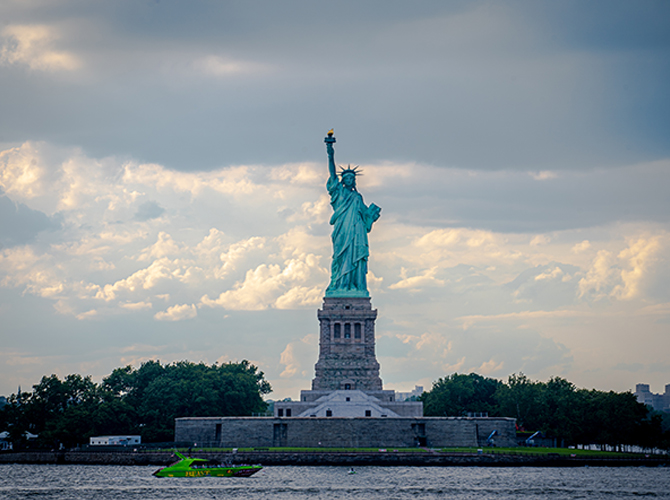
The colossal Statue of Liberty in New York. (Photo credit: Dev Sharma)
Dubai, Maldives workation pioneers
“Destinations like Dubai and Maldives have made us believe that Indians are more than ready to travel. India has been the number one source markets for both of these destinations, in spite of the global pandemic,” Nijhawan says.
Upasana Gupta, a 24-year-old Delhi resident who works as a business optimisation executive at a pharmaceutical company in India, left for Dubai in April with her family and has been staying there for more than 3 months.
“Dubai was a natural option for us because we take trips there at least once every two years. We left India when things were starting to get out of hand here and resources were running out. As soon as we heard there was going to be a ban on travel, I got on one of the last flights out,” Gupta tells India Outbound.
She explains that dealing with the Covid-19 panic in India was especially stressful because during the second wave, resources were often scarce and vaccinations were not in full swing, so she was especially concerned with putting her elderly family members at risk.
“When I got here, I was much calmer and we were not constantly worried about safety. Mask protocols are very strict in Dubai, which is how they have been keeping it under control despite opening up borders, and it almost feels like Covid19 does not exist. I even went to a concert yesterday, something I would never think about doing back home,” she adds.
Dubai, in the heart of the United Arab Emirates, is known for its luxurious shopping scene, ultramodern architecture like the magnificent Burj Khalifa, and lively nightlife. Even though Gupta had to deal with stressful events at work, the vacation-feel was a welcome change, and Gupta describes her stay as relaxing, a constant exploration of glamorous restaurants and bars. As a visitor to Dubai, she had exclusive travel allowances and was also able to take short trips to nearby places such as Turkey.
“It was also great because we could go for dinners, walk around, see sights like the fountain show at the Burj and the marine animal parks and go out for drinks, but in Delhi just leaving my room was stressful. I think my productivity levels have definitely gotten much better as well because I have more energy and I am not stuck on one desk the entire day,” says Gupta.
Dubai has always been known as a popular destination for India’s wealthiest, but several other destinations across the world have also been on the list for digital nomads, some specifically because of their affordability for longterm stays.
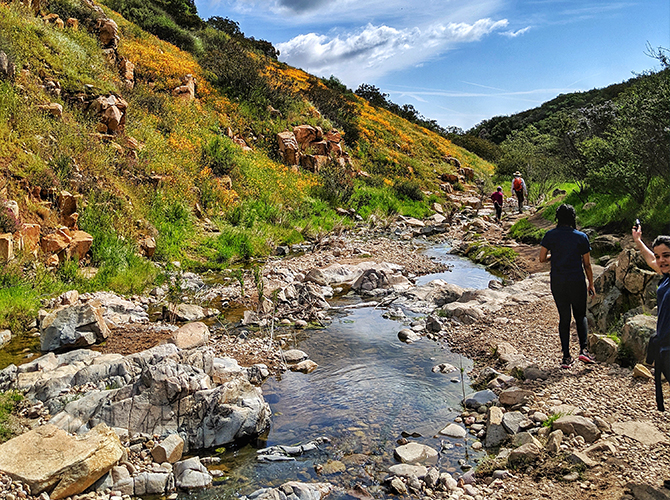
Hikes are a great way to unwind after a week of work (Photo credit: Dev Sharma)
Sri Lanka bids to grab marketshare
This strategy has received prominence globally. Club Med, a French travel and tourism operator headquartered in Paris, released its index of the best places and countries around the world to become a Digital Nomad and listed Thailand as the top pick, saying, “Shaking off its party island reputation over recent years, the southeast Asian island is now becoming known as a digital nomad’s paradise.”
Sri Lanka was also recently recognised as one of the top destinations for Digital Nomads, emerging second in Club Med’s report, which said, “Sri Lanka was ranked so highly because of its comparatively low living costs, average temperatures of 30°C along with ample activities and landmarks for visitors to enjoy, and a beautiful working backdrop of lush green mountains, coral reefs and powdery sand, which combines to offer a great remote working experience,” allocating the country a score of 238 out of 320.
The country’s tourism experts say this recognition has come just as Sri Lanka Tourism charts a new path and it offers to the tourism industry here another avenue to market the island in a bid to boost tourism amid the global slowdown.
“Sri Lanka is poised to be the perfect post-pandemic destination with its wide, open spaces and naturebased attractions. After experiencing prolonged lockdowns and travel restrictions, people are embracing the ‘work from anywhere’ concept with the requirements being a picturesque setting, cultural experiences, adventure and good WiFi connection,” says Kimarli Fernando, chairperson of Sri Lanka Tourism.
This freedom to explore nature and open spaces, away from the dangers of crowded areas and cities, constitutes a big part of what attracts Indians to workations. Many of these tourists prefer to visit destinations abroad in small groups, with friends or family. A new Mercer report revealed that the pandemic is reshaping the way global companies are looking at expatriate relocations, and that since traditional long-term assignments abroad can be costly, many firms have turned to one-way transfers or short-term assignments. With the rise of remote work, companies are also testing out virtual assignments and their employees are requesting to “work from anywhere”.
Chanakya Varma is a Bengaluru resident who works in product management at a multinational tech startup headquartered in the United States. In the beginning of the year, Varma had been assigned to a project that involved American clients, which meant he was working with US time zones and struggling with an uncertain schedule and incessant night shifts.
In addition to the continuous, although necessary, lockdowns, it had a negative effect on both his physical and mental health and so, after more than a month of this, Varma and his friends, who were also tired of being stuck inside, decided to tour around the States while working remotely.
“I connected with some of my high school friends and coworkers. All of us were pretty bored and burned out working from home. Of course, it is nice to be home during the pandemic with parents and family around, but at the end of the day after doing it for a few months, it can become really suffocating,” Varma tells India Outbound.
Varma and his friends left India in March and travelled mainly around California, staying in smaller cities such as San Diego and the outskirts of San Francisco, as well as visiting other parts of the country such as Chicago, New York and Montana. The tropical, sunny weather and plethora of activities around the breath-taking beaches in California provided a pleasant atmosphere to relax and work at the same time.
“We didn’t want to fly on planes constantly because of Covid-19, so we went on nearby drives a lot, some famous hikes like Potato Chip Rock, and once we even went across the border to Mexico for a day trip. We also visited Los Angeles, but I preferred avoiding crowded areas and clubbing or those typical organised touristy places, so outdoor activities were perfect for me. One of the most memorable things we did pretty early on was camping in a desert park in Anza Borrego, where we rented pickup trucks and put together a bunch of towels and blankets and had a picnic overnight. It was so windy and sleeping under the beautiful canopy of stars was a crazy experience. It was a really nice feeling to just be out after being locked inside for most of the year,” says Varma.
As people are now being forced to enjoy once-in-a-lifetime milestones such as weddings and graduation celebrations over virtual platforms such as Zoom, he also explains how the workations allowed him to experience things that we could once take for granted. The opportunity to connect and interact with people and break out of the feeling of isolation that many people have experienced over the past year was the most special part of being a digital nomad, according to Varma.
“When I did day trips to other cities, I wanted to learn about the city as quickly and efficiently as possible, because I only have a limited amount of time, so tour guides are definitely helpful. But having a longer time window during workations, there’s definitely value in interacting with locals and having those serendipitous conversations with people about hidden gems in the cities that limited organised tours may not let you see,” says Varma.
“Towards the end, when vaccinations started, cities slowly started opening up again so we could move out more, go downtown. Just meeting new people and not having to go through the same conversation of “what’s next, when will this terrible situation end,” was the best feeling. It was kind of like an extended Spring Break at times. We had a few boat parties and we were often right on Pacific beach, so bonfires became a bi-weekly thing. I have a sweatshirt that permanently smells like lighter fluid now,” he adds, laughing
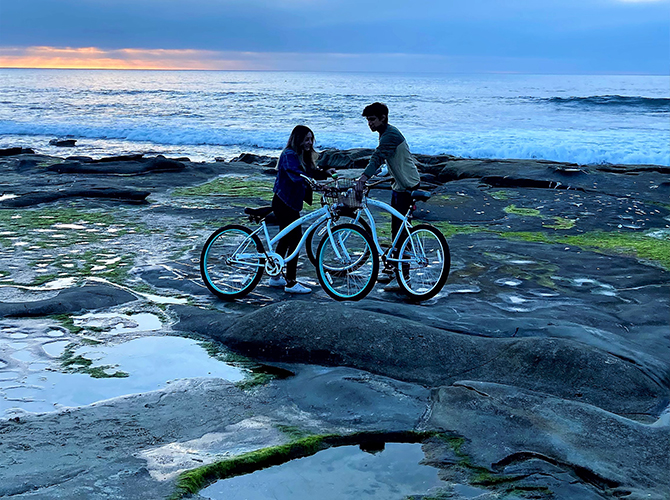
Tourists can rent bikes, a cheaper and more fun option to sightsee at your own pace (Photo credit: Chanakya Varma)
Independent, responsible & all-season travel
Research has also found that this emerging group of digital nomads usually travel independently, using information researched online through organic sources. The free and independent nature of their travels combined with their longstay patterns in one main destination makes this segment a lucrative market to pursue, according to Sri Lanka Tourism.
“One silver lining to the pandemic is that consumers are now conscious and demand a sustainable and responsible travel policy. With Workations gaining popularity, travellers are looking out for more control over their itinerary, and it is now more than ever that Indians are booking independent villas, premium homestays and non-hotels,” says Nijhawan.
Tourists like Varma prefer to stay in Airbnbs rather than hotels or expensive resorts, which is a far more budget-friendly option. Moreover, it also provided a better environment for working and being in a relaxed space that one can make on their own.
“We found an Airbnb with a perfect sea-view to live all together, with a flexible lease. All of us wanted to live in an environment that felt like home, where we could cook if we got tired of eating out, for example, and it felt really comfortable, not crowded or stuffy like a hotel might have been,” says Varma.
Tour operators and travel industry experts believe that this trend will continue to expand as travel restrictions ease, more firms offer perks such as a 4-day working from office week and companies use hybrid models to adjust to this unseen phenomenon. Another added benefit is that as digital nomads are not sensitive to seasonal travel, it will boost off-season tourism.
“We are currently working on securing the necessary framework to support the expansion of this market and looking at the possibility of longterm visas for Digital Nomads, which is essential to secure this segment. The positive impact independent longstay travellers will have on industry stakeholders is tremendous. With the multitude of immersive experiences destinations have on offer, the SME segment will also experience growth by providing support services and curated experiences to this high yielding emerging market,” says Sri Lanka Tourism.









